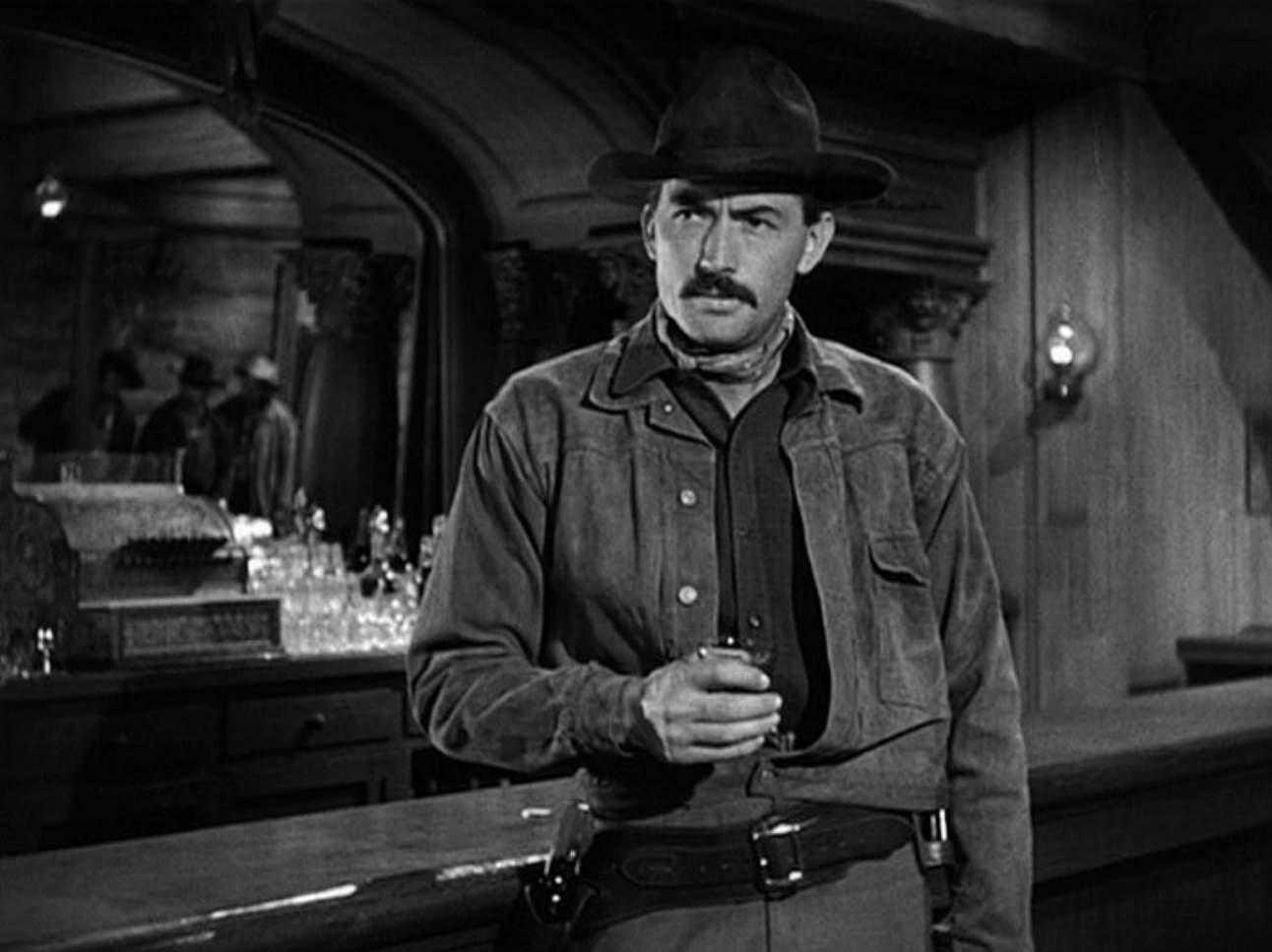
- Industry
The Gunfighter, 1950: Gregory Peck’s Psychological Western
Gregory Peck cultivated the screen image of the liberal, benevolent patriarch, greatly assisted by his famously deep, well-modulated voice. In Elia Kazan’s 1947 drama, Gentleman’s Agreement, he played a conscientious journalist fighting anti-Semitism. In his most iconic role, he also embodied most effectively the sensitive single-parent lawyer Atticus Finch, fighting for racial justice in To Kill a Mockingbird.
The Yearling (playing yet another kind-hearted father) in 1947, and continuing with To Kill a Mockingbird in 1963, and the TV mini-series Cecil B. deMille Achievement Award.
King Vidor’s 1946 extravagant Western, Duel in the Sun, and in the lead role of the lesser-known Western, The Gunfighter. That 1950 film, an adult psychological Western, launched a whole cycle of character-driven Westerns, including Jimmy Stewart’s Henry King, with whom Peck had made six films (including the powerful 1949 WWII drama, Twelve O’Clock High), The Gunfighter was written by William Bowers and William Sellers (with an uncredited rewrite by the film’s producer Nunnally Johnson). The script was loosely based on the exploits of an actual western gunfighter Johnny Ringo, a distant cousin of the Younger outlaw family, and enemy of Doc Holliday and the Earp brothers.
The Shootist, is thematically very similar to that of the 1950 film.
Millard Mitchell), an old friend of Ringo’s, urges him to leave, as his presence would only bring trouble. Ringo agrees to depart as soon as he sees his wife Peggy (Helen Westcott), whom he has not seen in eight years, and his son Jimmy (B. G. Norman) whom he has never met. Shortly after Ringo is told that Peggy has changed her surname to conceal their relationship and has no interest in seeing him, he is confronted by Hunt Bromley (Skip Homeier), a young gunslinger eager to make a name for himself.
Darryl F. Zanuck disliked this resolution, and King and Johnson were forced to do a rewrite. The movie’s new last scene depicts Ringo’s funeral, in which Peggy proudly reveals to the townspeople that she is Mrs. Ringo, suggesting that in death, Ringo finally found redemption through his wife’s forgiveness.
The Gunfighter performed only moderately at the box office, Skouras told him, ‘That mustache of yours cost us millions.’
Zinnemann’s 1952 feature, High Noon, but he turned it down because he didn’t want to be typecast as a Western actor. The role then went to Gary Cooper, who scored big, winning his second Best Actor Oscar and the Golden Globe Award.

